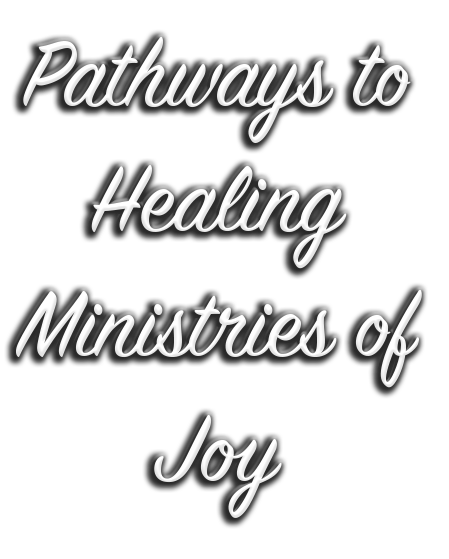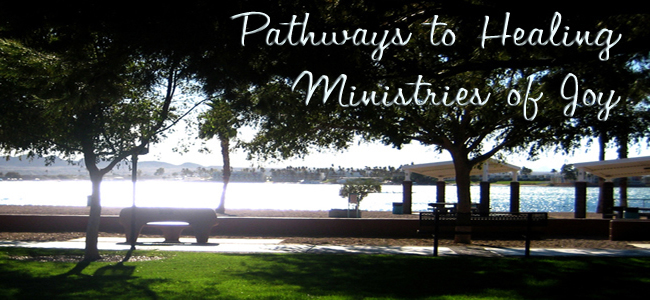Building Healthy Coping Skills
Chaplain Joy Le Page Smith, M.A.
Board certified chaplain
Learning to cope with the difficulties of life is a task we learn through trial and error. This writing is about exploring ways to circumvent difficult feelings and distracting thought patterns through pleasant escapes. We can distract ourselves from tormenting, dark thoughts and compelling emotions. We can put ourselves in “better space” mentally and emotionally, by applying coping skills capable of creating quietude and calmness—moments of enjoyment.
Fear, for instance, brings anguish. Urgings and cravings hold agonies. Good coping skills hold definite hope for reducing our anguishes. Many attempt to manage the difficult and highly stressful times of life through using alcohol and drugs. Yet, this creates a far greater difficulty as many get habituated and fail to recover. We can reach far greater enjoyment in a life by designing ways for shifting gears and purposely taking detours around the ruts of worry and self-doubt.
Below are examples of tracks to try for enjoying life within times that are downright hard to handle. For instance, notice when you start tensing up shoulders are tight and aching . . . tongue is at the roof of your mouth and, jaws are clenched. You are pushing yourself and anxious. This is a moment to remember good self-care is in order!
Consider deep breathing as a coping skill. You can do it at any point or place you want. Pause. Start breathing deeply, taking in more air. This exercise in breathing strengthens and supports the nervous system resulting in a calming experience.
The entries extended below can each bring enjoyment of YOU, of what you think and of what you feel. Try the various suggestions finding the ones that work best for you.
We all have stress to deal with. Medical science has proven chronic psychological stress causes oxidative damage. Oxidative damage is detrimental to sound health and can accelerate one’s aging process.
Dr. Nora Vocci, director of the National Institute of Drug Abuse states that stress alters the way the brain thinks, “The part of the prefrontal cortex that is involved in deliberative cognition is shut down by stress.”[1] So, enjoy as many of the stress reducing activities extended here as you can—and as often as you can. Doing so will help you minimize stress and protect your health.
Truth be known, developing coping skills and learning how to set boundaries are the two main ways to control stress on a daily basis. Going forward, your help with these two elements of good self-care will be the focus and will make a remarkable difference in your future health and happiness.
Finding ways to deal with unexpected events that happen will greatly lessen your stress level. A major element of developing coping skills lies with coming to value oneself enough to take good self-care. Having some fun in life is as important as eating healthy foods and getting plenty of rest. But when we neglect these premises of healthy living and do not have accessible coping skills then this can become a combination that is ruinous to one’s health.
Pick activities from the list below that you want to try as you strategize toward developing (or returning to) a loving friendship with yourself. Discover the comfort of simply being who you are and appreciating what appeals to you. Learn to hold the space of enjoying yourself.
Use the list below during hard times when you feel uncomfortable in your skin, or highly pressured. You will “spark” on one or two.
The first two on this list are coping skills that are highly effective—and successful.
– Meditation and/or prayer[2]
– Read Holy Writ
– Exercise using gym equipment, or other methods like biking
– Take a walk, ideally 30-40 minutes; or a run, based on your safe ability
– Visit a pet shelter (where you can talk to and pet animals)
– Use a relaxation app or practice progressive muscle relaxation
– Listen to music, or play a musical instrument
– Sing or hum at points when anxiety arises or feeling depressed
– Make a blessing or gratitude list (“I am thankful for . . . “)
– Enjoy water (swimming, soaking bath, and by other means)
– Journaling is a meaningful way to get in touch with what you need it life
– Draw, color, paint, sculpt, or do ceramics
– Play with a pet, or a friend’s pet
– Try a new recipe, then ask friends, “come over to help eat”
– Clean a messy drawer, cabinet or closet that has been bothering you
– Take a drive . . . find a nature path to explore
– Read your favorite kind of book
– Enjoy playing cards with a friend, or friends, try Bunco, Gin Rummy, etc.
– Plan time with friends or family who have a baby; rock the baby
– Spend time with friends or family who have kids. Play games like a kid
– Look into a new hobby
– Look at landscape photos that help you feel relaxed
– Go to a park just to listen and watch what all takes place there
– Visit a zoo, science display, or museum
– Go to your favorite type of movie (or see one on a device)
– Visit a skating arena; watch and join in if able
– Dance!
– List good times and blessed events of your life
– List all for which you are thankful
– Sit by the water—breath, listen, smell and look around
– Ask a loved one to rub your shoulders . . . or, go get a massage
– Laugh as often as you can—even to pretend laughter (it works)
– Google “funny YouTube videos”
– Google YouTube singalong videos”
– Take some time in a shopping center; watch and listen to people
– Pursue something you want to learn about; share with a friend
– Ride a bike or skate as often as possible
– Look at people while giving a smile; watch their eyes: enjoy!
– Find a contemplative water fountain (or waterfall in nature); sit and listen
– Listen to Ted Talks; let your mind become engrossed in the subject
Find Ted Talks at https://www.ted.com/talks
There are many YouTube videos on various subjects that will grab your full attention, put you in a different “space”—and are likely to even challenge your thinking.
Remember, moving your body in challenging ways and fully occupying your mind will put you in a different space. Try it.
Here are some places to go to switch gears, in order to reach a more relaxing, more joyful “space”:
Visiting these YouTube videos will do wonders with putting you in “good space.”
https://www.youtube.com/watch?v=75PUjUsGsQQ (takes only 2 minutes)
https://www.youtube.com/watch?v=XUKrtkHbA90 (minutes of fun dance)
https://www.youtube.com/watch?v=UxOpnhY6ObU (beautiful pictures with flute music; 5 ½ minutes)
Now, return to the list of coping skills. Circle each entry above that piques your interest or is an activity you have enjoyed in the past. Then write below indicating which of these coping skills you will want to try, during times when you feel emotionally or spiritually at a loss and are tempted to act-out in an unhealthy way.
[1] Lemonick, Michael. The Science of Addiction. Special Time Edition, the Science of Addiction What We Know. What We’re Learning. Book Excerpt: Meredith Corporation: NY (2019) p. 8.
[2] Many people use alcohol or drugs to make it through life, but there are much better ways than to give one’s life over to additives that get a hold on one’s life through merciless cravings.
My dependence on talking with God and seeking His guidance finds me following the call of my heart to help people get through the hardest places in their lives. This “addiction” is a peaceful path to fulfillment.
[1] Lemonick, Michael. The Science of Addiction. Special Time Edition, the Science of Addiction What We Know. What We’re Learning. Book Excerpt: Meredith Corporation: NY (2019) p. 8.
[1] Many people use alcohol or drugs to make it through life, but there are much better ways than to give one’s life over to additives that get a hold on one’s life through merciless cravings.
My dependence on talking with God and seeking His guidance finds me following the call of my heart to help people get through the hardest places in their lives. This “addiction” is a peaceful path to fulfillment.

